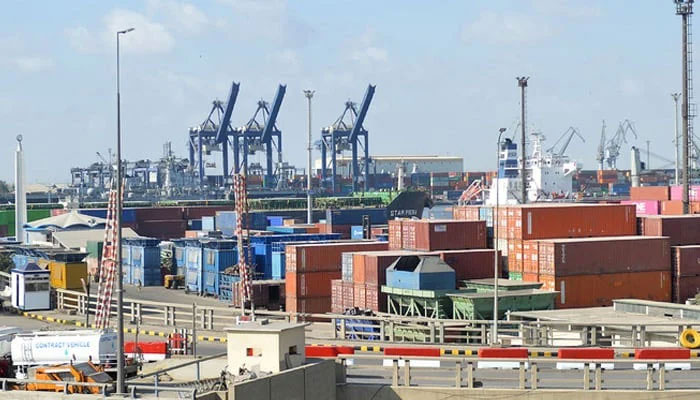Reality check
LAHORE: Pakistan’s economic challenges do not have quick fixes. Achieving sustainable growth demands tough but necessary reforms, a commitment to long-term development, and the building of trust with international partners.
The country’s economic relationship with the IMF and other international creditors is marked by cyclical dependence. Frequent reliance on IMF bailout packages has burdened the population, with stringent conditions leading to heightened poverty and economic hardship.
The country grapples with deep-rooted structural issues, including a narrow tax base, inefficiencies in the energy sector, a large informal economy, and low productivity in key areas such as agriculture and manufacturing. The heavy domestic and external debt makes it challenging to invest in long-term growth initiatives. The focus on short-term debt rescheduling creates uncertainty and obstructs sustainable economic planning.
International investors and friendly nations are wary of committing to long-term investments due to concerns about political instability, governance, and economic management. The IMF's conditions, aimed at stabilizing the economy by reducing fiscal deficits, removing subsidies, and implementing structural reforms, while crucial for long-term stability, often worsen short-term hardships for the population.
Pakistan needs comprehensive reforms that extend beyond IMF stipulations. This includes broadening the tax base, improving tax collection, enhancing transparency, and addressing corruption. Reforms in critical sectors like energy, agriculture, and manufacturing are essential to boost productivity and reduce import dependency.
While the IMF often serves as a lender of last resort, engaging proactively with other multilateral institutions such as the World Bank, the Asian Development Bank, and the Islamic Development Bank can help build infrastructure and support growth.
Strengthening independent institutions to manage economic policies effectively is crucial. This involves enhancing the central bank's capacity, improving public-sector enterprise efficiency, and ensuring the rule of law to foster a conducive investment environment.
Increasing exports through diversification, value addition, and improved competitiveness can help reduce the trade deficit and reliance on external financing. Exploring new markets, improving product quality, and negotiating better trade agreements could be advantageous.
Creating a stable and predictable business environment is key to attracting foreign direct investment (FDI). This requires not only macroeconomic stability but also addressing governance issues, ensuring property rights, and providing incentives for long-term investments in critical sectors like energy, technology, and infrastructure.
Pakistan could seek more favourable debt restructuring terms or relief from bilateral and multilateral creditors. Negotiating longer-term rescheduling or partial debt forgiveness could offer breathing room for economic planners.
Implementing targeted social safety nets to protect the most vulnerable during economic reforms is crucial. Instead of cash disbursement programmes, focusing on health, education, and direct income support can help mitigate the adverse effects of austerity measures.
Political stability is essential for economic growth. Building consensus across political parties for a long-term economic plan and reducing political volatility can boost investor confidence and economic prospects. While IMF programmes offer temporary relief, a broader strategy involving structural reforms, institutional strengthening, and engagement with multilateral partners is vital for Pakistan to break the cycle of dependency and build a resilient economy.
-
 Cuba-Canada Travel Advisory Raises Concerns As Visitor Numbers Decline
Cuba-Canada Travel Advisory Raises Concerns As Visitor Numbers Decline -
 Anthropic Buys 'Super Bowl' Ads To Slam OpenAI’s ChatGPT Ad Strategy
Anthropic Buys 'Super Bowl' Ads To Slam OpenAI’s ChatGPT Ad Strategy -
 Prevent Cancer With These Simple Lifestyle Changes
Prevent Cancer With These Simple Lifestyle Changes -
 Air Canada Flight Diverted St John's With 368 Passengers After Onboard Incident
Air Canada Flight Diverted St John's With 368 Passengers After Onboard Incident -
 Experts Reveal Keto Diet As Key To Treating Depression
Experts Reveal Keto Diet As Key To Treating Depression -
 Inter Miami Vs Barcelona SC Recap As Messi Shines With Goal And Assist
Inter Miami Vs Barcelona SC Recap As Messi Shines With Goal And Assist -
 David Beckham Pays Tribute To Estranged Son Brooklyn Amid Ongoing Family Rift
David Beckham Pays Tribute To Estranged Son Brooklyn Amid Ongoing Family Rift -
 Jailton Almeida Speaks Out After UFC Controversy And Short Notice Fight Booking
Jailton Almeida Speaks Out After UFC Controversy And Short Notice Fight Booking -
 Extreme Cold Warning Issued As Blizzard Hits Southern Ontario Including Toronto
Extreme Cold Warning Issued As Blizzard Hits Southern Ontario Including Toronto -
 Lana Del Rey Announces New Single Co-written With Husband Jeremy Dufrene
Lana Del Rey Announces New Single Co-written With Husband Jeremy Dufrene -
 Ukraine-Russia Talks Heat Up As Zelenskyy Warns Of US Pressure Before Elections
Ukraine-Russia Talks Heat Up As Zelenskyy Warns Of US Pressure Before Elections -
 Lil Nas X Spotted Buying Used Refrigerator After Backlash Over Nude Public Meltdown
Lil Nas X Spotted Buying Used Refrigerator After Backlash Over Nude Public Meltdown -
 Caleb McLaughlin Shares His Resume For This Major Role
Caleb McLaughlin Shares His Resume For This Major Role -
 King Charles Carries With ‘dignity’ As Andrew Lets Down
King Charles Carries With ‘dignity’ As Andrew Lets Down -
 Brooklyn Beckham Covers Up More Tattoos Linked To His Family Amid Rift
Brooklyn Beckham Covers Up More Tattoos Linked To His Family Amid Rift -
 Shamed Andrew Agreed To ‘go Quietly’ If King Protects Daughters
Shamed Andrew Agreed To ‘go Quietly’ If King Protects Daughters




